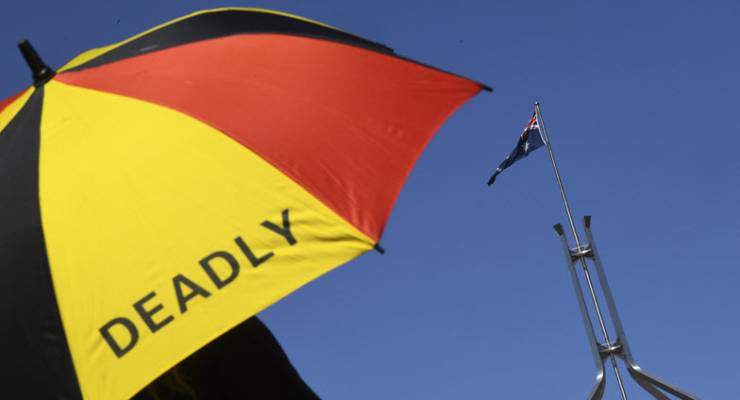
We represent a fraction of the voting population in this colony we call Australia. We know that our votes are largely inconsequential to those that are campaigning, but their campaign announcements are not inconsequential to us. As our community and those that support of us wade through the muck of politics, we know that even seemingly positive announcements can have a malevolent intent.
One day before the election, and the pledges and policies have been laid out. We can see that the “measures” taken by the two major parties aren’t innovative, nor do they differ greatly from one another. It makes the decision even more difficult — even in circumstances where you aren’t voting for the majors, you need to consider the preference deals at play.
So where do the chips fall? Everywhere, in a mess.
This election campaign has been more of the same: pledges to “close the gap” and money being thrown at health without any clear direction as to how that will make meaningful change. We have a significant portion of the monetary commitment earmarked for youth suicide. We do not have any clarity on where or how this will be spent, and what outcomes it will address.
There has been very little released from either party to suggest deep analysis, to suggest they’ve done more than simply note the horrendous statistics. If they had, there would be a clear plan for self-determining and flourishing communities.
When people ask me how the two major parties stack up against one another — because they feel like the Australian political system is simply voting for the lesser of two evils — I tell them that they need to look beyond the dollar commitment and look to the intent, the policy and the policy delivery.
We know that the Coalition is against a Voice to Parliament; Labor has pledged to enshrine it.
We know that the Coalition has pledged a significant amount of funding for Indigenous health research, the Lowitja Institute and youth suicide; Labor has pledged funds for health outcomes with a large focus on suicide, rheumatic heart disease and preventable heart diseases.
There have been announcements about education, remote housing in the Northern Territory and targeting crime in these areas. Labor has announced its intention to have the first Indigenous minister for Indigenous affairs, and a change in the way they deliver policies — having Indigenous organisations leading the way, but there’s no mention of changing the policies themselves.
So when people ask me how to vote, I find it difficult to answer. The two major parties have a very similar approach: they both continue to see our community as a problem that requires solving.
The Coalition is not quite as overt as One Nation in its contempt for us, but the crumbs lay in the party’s conduct over time. It says it’s committed to spending money on youth suicide, but where was this support at Uluru? Many of our communities came together to discuss exactly what we need, and we decided on a Voice to Parliament. When the Coalition government was approached, the Voice was callously brushed aside. The government expected us to accept whatever they wanted to jam down our throats instead. We need to believe they care about our kids dying, but it seems listening to us in a cohesive and representative way is out of the question.
The Labor Party has made some positive announcements that have been well received by the community, but we still need to critically assess intent and delivery. The party is apparently focussing on health outcomes and youth suicide, but this tends not to correlate with its support for the Coalition’s Northern Territory intervention, and the expansion of the intervention more generally. The First Nations community, allies and academics have long been declaring this to be a woeful abuse of human rights that is sending remote communities further into despair. We’re seeing the consequences of this despair and it’s now viewed as a problem because it draws heat for the governing parties…
It is not enough to throw money at a perceived problem; for one, it continues the narrative that the First Nations community is welfare-reliant. There needs to be a plan for how the “problem” will be targeted by those funds, and at no point has either party suggested that they would consult with communities to inform future policies. If they continue to fail to listen, their policies will continue to fail too — and our children will continue to slip through the cracks.







Crikey is committed to hosting lively discussions. Help us keep the conversation useful, interesting and welcoming. We aim to publish comments quickly in the interest of promoting robust conversation, but we’re a small team and we deploy filters to protect against legal risk. Occasionally your comment may be held up while we review, but we’re working as fast as we can to keep the conversation rolling.
The Crikey comment section is members-only content. Please subscribe to leave a comment.
The Crikey comment section is members-only content. Please login to leave a comment.